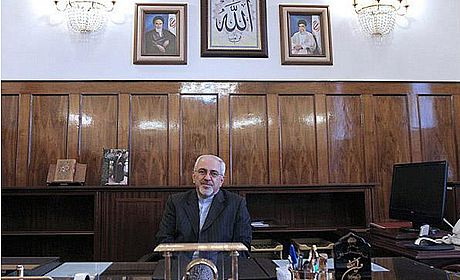Certain Change in Iran’s Nuclear Policy

Dr. Abbas Maleki, who was Deputy Foreign Minister from 1988-1997 and who has been an associate professor at Tehran’s Sharif University of Technology and a researcher and fellow at Harvard University and MIT, spoke to Iranian Diplomacy about the most important challenges facing Iran’s foreign policy in the new Rohani administration.
- In my opinion, the issue of Iran-US relations is the most important foreign policy challenge of Dr. Rohani’s administration. Our relations in the region, our relations with Asian and European countries, and the nuclear issue are all related to Iran-US relations and this issue must be the main axis of Iran’s foreign policy. It is unfortunate to say that some of the bills passed by the US Congress against Iran were done so unanimously; this means that no one opposed the bills and no one abstained from voting. The reason is that animosity towards Iran is unfortunately institutionalized in Washington. This is an important issue that Iran’s Foreign Ministry must comprehend and plan for.
- There are about 500,000 Iranians who live in Britain and we should not have allowed the British embassy to be shut down in Tehran even if we would have not done so just for their sake. About 400,000 Iranians live in Canada. Although we know that the Canadian government cut its ties with Iran for no apparent reason, we must make efforts to re-establish these relations in order for our people to enjoy their rights, for example to be able to vote in the presidential election or to travel to Iran. About 1,000,000 Iranians also live in the US and this is also an important issue and must be pondered well.
- The sanctions imposed against Iran will not be removed any time soon. You should place yourself in the position of those who have imposed these sanctions. What reasons are there to remove them while the results they desired are being seen?
- Iran’s nuclear policy will certainly change, either strategically or tactically. It is obvious that our previous policies could not be continued. Nevertheless, we must work with the world. Whether we like it or not, these countries are the same countries that sit at the other side of the table. We cannot say that they are all making mistakes and only we are right. Such a statement can be made but such a viewpoint would lead to our country’s interests being sacrificed.
- More importantly than being a security issue, Iran’s nuclear issue is a diplomatic one. If we consider this issue as being diplomatic, the Ministry of Foreign Affairs can then better advance nuclear negotiations; this is while people from the National Security Council can also be present in these negotiations. A look at our previous negotiations also shows that the other parties are all from foreign ministries and not from any other institutions. This shows that this issue has a foreign policy nature. Perhaps one of the things that should happen is for the nuclear file to be transferred to the Foreign Ministry from the National Security Council. Nevertheless, it is the strategies that must first be defined.
- Changing Iran’s image in the world requires public awareness. This means that every individual must change Iran’s image at the international level within his/her surroundings. Iranian students who study abroad and Iranians who live there can be very effective in this regard. This issue will certainly necessitate cooperation between the Iranians. Unfortunately, following the events of 2009, the gap between Iranians inside and outside the country grew wider, but right now this feeling of solidarity does exist.
- If the Iranian government decides to do so, it can define a two or three year project to improve Iran’s image in the world. But this project would be an interdisciplinary project, meaning that the Ministry of Foreign Affairs, the media, and the Iranians living abroad must become active and there should be theoretical and scientific discussions. One of these tasks is that foreign professors must be invited to the country and be hosted by the universities. The foreign embassies in Iran must also be part of this project. We have forgotten the foreign ambassadors, their wives and children, and those who work in foreign embassies in Iran. Plans should be made to incorporate them in our culture.

